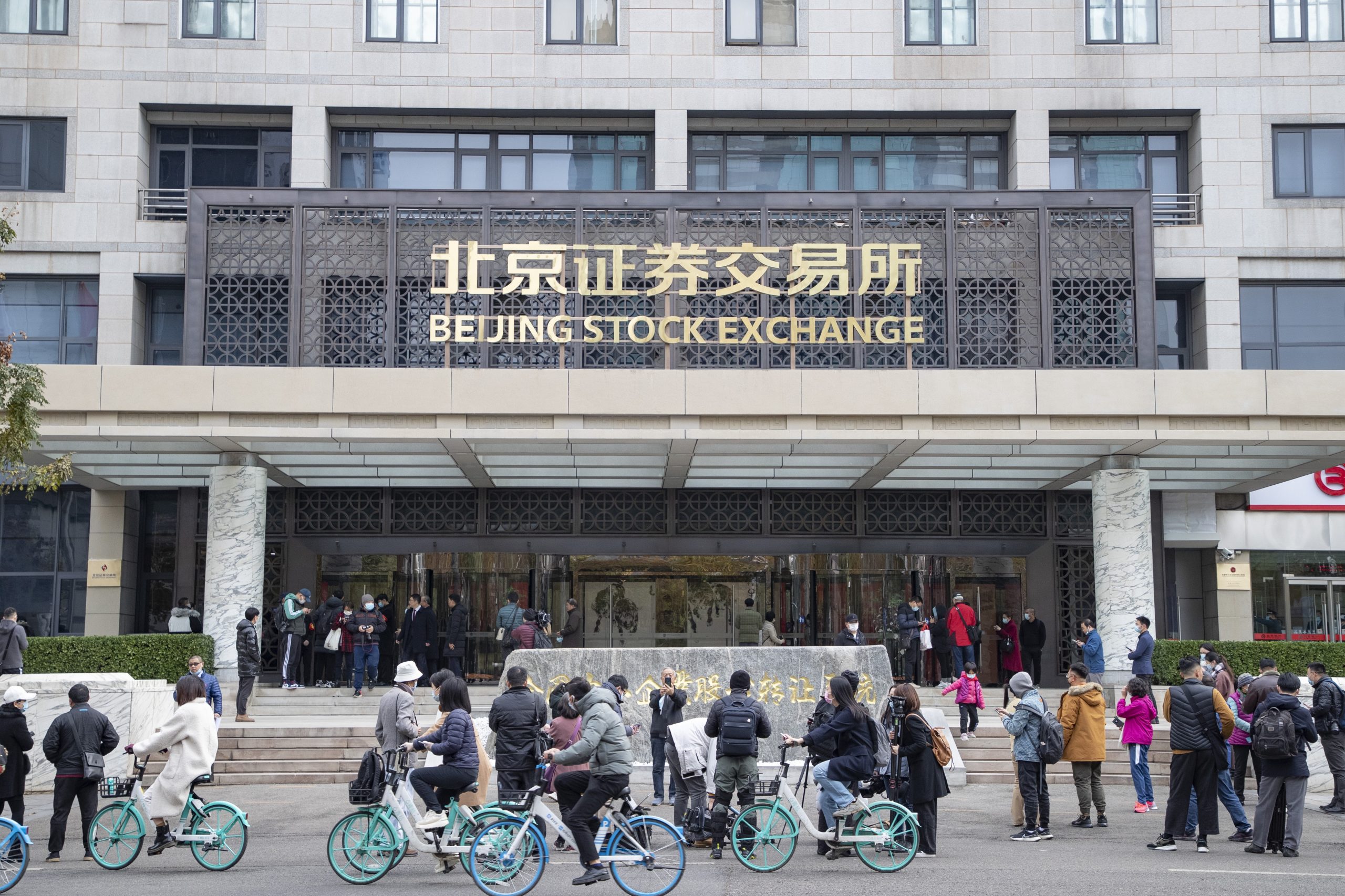The inauguration of the new Beijing Stock Exchange took place on Monday. For the time being, 80 shares can be traded on it, mainly those of innovative SMEs. The objective of this new exchange is to facilitate access to financing for this type of company.
Until now, Asia’s largest economy has had three major stock exchanges, one in Shanghai, the country’s economic capital, another in the metropolis of Shenzhen and the last in the semi-autonomous territory of Hong Kong.
In China, SMEs find it difficult to obtain bank loans, especially in the current economic downturn. The new Beijing Stock Exchange therefore aims to provide an additional means for these SMEs to raise funds.
The launch of the Beijing stock exchange comes at a time when regulators are cracking down on large technology companies, accused of “disorderly expansion” in recent years. For Yi Huiman, chairman of the China Securities Regulatory Commission, it is also a milestone in China’s capital market reforms. “It is important because it will strengthen the capital market at many levels, improve the financing system for SMEs, stimulate innovation and modernise the Chinese economy,” he said at a ceremony on Monday.
A total of 81 shares have started trading to mark the official launch of the exchange. Of these, 19 are up and more than 50 are down. “This is a pretty good performance for the first day,” said Yang Hongxun, an analyst at investment consultancy Shenguang. “With President Xi approving the exchange, I think you have little chance of this market failing.”
More than four million investors have opened accounts to trade on the new Beijing Stock Exchange, which adopts a registration-based listing mechanism, a system also adopted by ChiNext in Shenzhen and Shanghai’s technology-focused STAR market.
Companies listed on the new Beijing Stock Exchange will be able to migrate to the Shanghai or Shenzhen stock exchanges if their results are good enough.
Read also > STOCK MARKET : CHINA’S ECONOMY STALLS
Featured photo : © Getty Images










